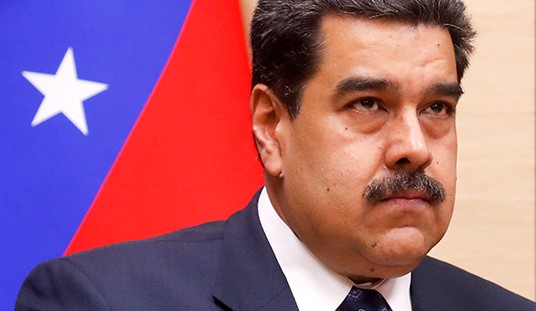I don’t have the data on hand, but if any enterprising researcher ever conducted a study on the per capita concentration of shopping malls and condo high-rises littering the metropolises of the planet, Bangkok would probably be at or near the top.
Nowhere in the city can one escape the long shadows of malls and condos — often located right across the street from each other, almost all built within the last few years, modeled on the malls of the West, those grand symbols of success and modernity.
Related: Converted Pagan Headhunters and the Shining City on a Hill
Mega-construction firm Central Group just opened up a brand-new behemoth right next to the iconic Lumpini Park.
For some reason, as if it’s appreciably different than the 200 other malls in Bangkok, 70,000 people showed up to mark the occasion.
Via Khaosod English (emphasis added):
The Silom-Rama IV district has reached peak vibrancy with the opening of “Central Park,” Central Group’s newest shopping center, which launched on September 4. The mall attracted over 70,000 visitors on its opening day alone, reflecting not only Central Group’s strength but also the tremendous potential of prime real estate in the Silom-Rama IV area....
Today, Silom has evolved into Bangkok’s “Super Core CBD” – a high purchasing power economic zone featuring over 40 office buildings and continuous development of mixed-use projects combining offices, retail, residential, and hotels. An estimated 700,000 people commute through the area on weekdays, with over 500,000 even on weekends.
According to CBRE Residential Transaction data from 2023, the investment potential of the Rama IV-Silom area is remarkable, with residential properties showing investment returns as high as 33.46% and compound annual growth rates of 13.68% – significantly higher than other Bangkok locations...
Dr. Nathakitthi Tangpoolsintana, Executive Vice President of Marketing at Central Pattana Public Company Limited, explains that Central Park will integrate Lumpini Park’s green spaces, similar to Central Park in New York or Hyde Park in London. This includes synchronized activities in both Lumpini Park and the center’s own 7-rai sky garden, panoramic Bangkok skyline viewing points, a 750-meter jogging track, and spaces for art and cultural activities.
In some sense, the developing world’s enthusiasm for material goods is understandable; in Vietnam, for instance — a place I am relatively familiar with by now, having lived there for some time — it wasn’t so long ago that virtually the entire country was subsistence farmers, toiling in poverty, living hand-to-mouth.
Related: Existential Angst in 'Nam (50 Years Late)
I don’t begrudge them their enthusiasm for material abundance.
But there is, I believe, something nihilistic and deeply unsatisfying about trying to find meaning in designer jeans or the latest iPhone, which probably isn’t really very different from the last one except for the extra few hundred dollars added onto the price tag.
In a sociology class at Valdosta State University many years ago, we watched a film called “Affluenza,” the central thesis of which was that an obsession with hoarding material goods was connected somehow to the unique spiritual malaise that has overtaken the West in recent years.
Granted, it was definitely communist propaganda on some level; my professor was a rabid bull-dyke feminist with whom I had little affinity. (Her brazen anti-male, anti-white propaganda, in fact, in retrospect, was a major turning point in my ideological evolution, but that’s a story for another day.)
Still, I found it compelling.
The transformation of Bangkok into a consumerist paradise is a recurring theme in my memoir, Broken English Teacher: Notes From Exile, an excerpt of which I include below:
December 2019
Bangkok, Thailand:
I gagged on the city.
Absent the gift of vision, the olfactory ambiance was how I would have known for sure this was Bangkok — aka New Sodom and Gomorrah. The half-putrid, half-sweet stench of sweat and beer and greasy streetside stalls and air pollution and the permanent fog of heavy industry stifled my nostrils…
As the Buddha taught, standing on the shoulders of intellectual giants before him who drew similar connections, obsession with materialism and suffering go hand-in-hand.
Skin whitening company ads dominate the streetscapes. Lottery gambling in the proletariat tradition of 1984 is rampant among the working class, which constitutes the vast majority of the population. Trucks selling beauty cream concoctions crawl along the streets at 10 km/hr, screeching empty promises of a better life out of loudspeakers mounted on top of the cabin.
(Thai law doesn’t ban street traffic from blasting out advertising through loudspeakers, so its residents are subjected constantly to recorded voices of fast-talking salesmen hocking all manner of consumer goods, their disembodied voices emanating from meandering vehicles all day, every day.)…
"Society" and "marketplace" are now synonyms in Thailand, as well as elsewhere where the markets replaced God. Buying and selling are the new Holy Communion with the Great Beyond. Shopping malls get built where temples would've been in another age.
The overwhelming majority of Thai pedestrians either walk with their phones to their ears or with their eyes on their screens, blinded to their self-enslavement, unaware even that they are enslaved.










